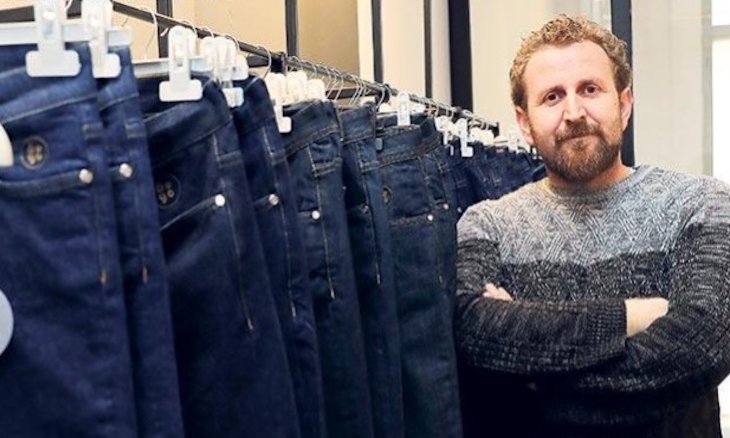Textile worker establishes 'clean jeans' after losing half lung capacity to denim sandblasting in Istanbul
Textile worker Bego Demir established a "clean jeans" brand after losing nearly half of his lung capacity due to being exposed to silicosis dust during the denim sandblasting process whilst working in a factory in Istanbul. “This is actually the first step of a project. With this step, we showed that it was possible to found a brand and produce a product that does not harm people or the environment,” Demir said.
Aynur Tekin / DUVAR
Textile worker Bego Demir established a "clean jeans" brand after losing nearly half of his lung capacity due to being exposed to silicosis dust during the denim sandblasting process whilst working in a factory in Istanbul.
Demir came to Istanbul from the southeastern province of Bingöl at the age of 15 and began to work in the working-class district of Güngören, only to subsequently become ill and lose 46.2 percent of his lung capacity as a result of exposure to the toxic materials in the workplace, a fate that also befell many of his coworkers.

In 2008, Demir established the Denim Sandblasting Workers Solidarity Committee, and fought to get denim sandblasting outlawed in Turkey. It was outlawed in 2009. Following that legislation, those who had gotten ill due to silicosis exposure were treated for free, and in 2011, those afflicted by the illness were granted retirement rights by the government.
“When I started working in denim sandblasting, I didn't know that one day this job could kill me, but now I know it. Since it is outlawed here, they will have people in other countries do it and kill them. It is difficult to live knowing this,” Demir said.
Turkey hosts three million textile workers, two million of which work informally. Like Demir, many get sick due to the chemicals to which they are exposed whilst working.
In 2018, the Turkey branch of the international Clean Clothes Campaign was established. "Clean clothes" refers to clothing that is produced in a healthy and safe atmosphere without harming the environment, without employing child laborers or exploiting workers, and under the guise of a union.
After meeting with a number of companies in Turkey, Demir realized that none of them met the Clean Clothes Campaign standards, and decided to establish his own firm, Bego Jeans.
“This is actually the first step of a project. With this step, we showed that it was possible to found a brand and produce a product that does not harm people or the environment,” Demir said.
Arif Ayar, who has worked in the textile for sector for 26 years, says that the dynamics of the industry have changed over the years though the exploitation of workers has remained unchanged.
“Previously they would hire you as an assistant, not pay proper wages and even be violent. Nowadays, there are huge firms in this sector. They pay for their employees' insurance and pay the minimum wage. However, if these companies produce 100,000 items, the under-the-table factories produce 300,000. They engage in inhumane bargains to make the job cheap, and it jeopardizes the worker,” Ayar said.
